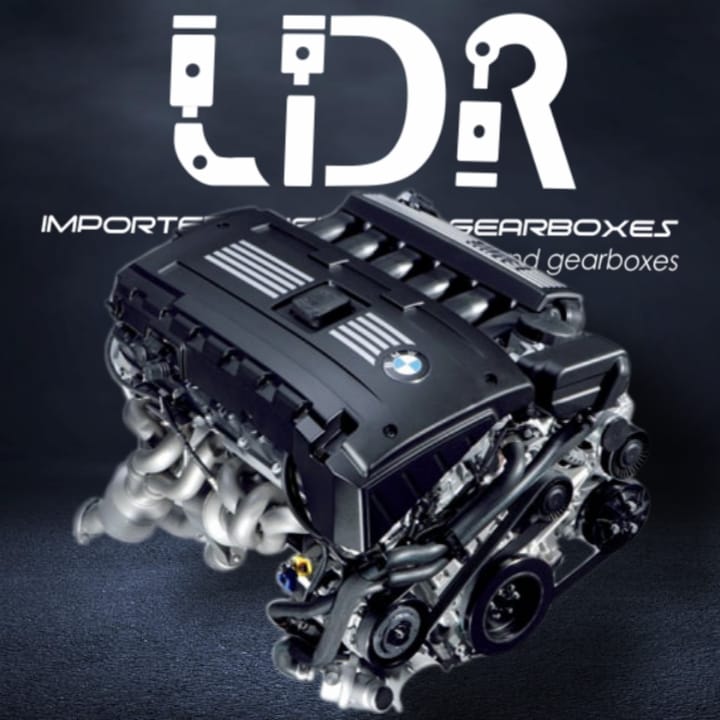Essential Factors To Consider for Picking the very best Engine for Your Needs
In the world of selecting the suitable engine to fulfill your needs, several essential aspects demand careful factor to consider to make certain optimum performance and efficiency. From the nuanced equilibrium in between power and performance to the often-overlooked elements of maintenance and solution demands, each aspect plays a crucial duty in figuring out the most ideal engine for your details requirements.
Power and Efficiency
When reviewing engines for ideal performance, it is crucial to focus on both power output and efficiency. Power output measures the ability of an engine to create power, which directly influences its efficiency. A high power result is crucial for requiring jobs such as high-speed demands or heavy-duty applications. It guarantees that the engine can handle the workload effectively and efficiently. Power alone is not sufficient; performance plays a substantial function in figuring out the overall efficiency of an engine. Performance describes just how well the engine transforms fuel into usable power. A more efficient engine will deliver better gas mileage, reduced exhausts, and minimized operating expense. Striking the ideal equilibrium in between power outcome and effectiveness is key to selecting an engine that satisfies your specific needs. It is important to consider factors such as the planned use the engine, environmental impact, and lasting cost effects when making this decision. By carefully assessing both power and performance, you can choose an engine that provides ideal performance and satisfies your needs successfully.
Gas Performance and Economy
Fuel efficiency refers to the engine's capacity to transform gas right into energy with very little waste, straight influencing operating costs and environmental sustainability. Engines with higher fuel effectiveness not only decrease fuel expenditures however likewise reduce carbon exhausts, contributing to a greener operation.

Compatibility and Application
Considering the fuel efficiency and economy of an engine, the following vital facet to address is its compatibility and application within certain operational contexts. Compatibility refers to just how well the engine incorporates with the general system or tools it powers. It includes aspects such as physical dimensions, placing alternatives, electrical user interfaces, and control systems. Guaranteeing compatibility is important to protect against issues such as getting too hot, vibrations, or power inequalities (bmw 318ti).
Various engines are made for specific objectives, whether it be industrial machinery, marine vessels, autos, or power generators. Comprehending the desired application allows for the selection of an engine that can supply the needed power output, torque, and functional characteristics.
Maintenance and Solution Demands
Upkeep and solution demands play a vital function in ensuring the longevity and optimum efficiency of an engine. Regular upkeep is necessary to prevent malfunctions, expand the life-span of the engine, and preserve its effectiveness. When choosing an engine, it is essential to think about the maker's suggested maintenance routine and the accessibility of service centers or qualified specialists.
Factors such as the frequency of oil changes, filter substitutes, and total evaluations can significantly influence the engine's performance. Some engines might require even more frequent servicing based on their style and use, while others might have longer periods in between upkeep checks. It is vital to stick to these service demands to stay clear of pricey repair work and unforeseen downtime.

Expense and Budget Plan Considerations
When choosing an engine for a specific application,Budget plan constraints commonly play a considerable role in the decision-making process. When considering the cost and budget plan ramifications of selecting an engine, it is important to analyze not only the preliminary acquisition cost however additionally the long-term costs related to upkeep, fuel usage, and possible upgrades or repair services. It is critical to strike an equilibrium between the ahead of time price of the engine and its total lifecycle expenses to ensure that the selected engine stays financially lasting throughout its operational lifespan.
Aspects such as gas integrity, efficiency, and longevity can directly influence the overall price of ownership of an engine. While an extra pricey engine might have higher in advance costs, it could potentially result in reduced upkeep and gas costs gradually, thus supplying far better value in the lengthy run. Furthermore, considering the schedule and cost of extra components, as well as the simplicity of maintenance and solution, can assist prevent unforeseen monetary stress in the future. By very carefully evaluating these expense and budget plan factors to consider, you can make an enlightened choice that lines up with your operational needs and financial restrictions.
Verdict

Fuel performance refers to the engine's capacity to transform gas right into energy with marginal waste, straight impacting operating expenses and ecological sustainability.Aspects influencing fuel performance include engine style, combustion performance, and overall performance optimization. Additionally, choosing the suitable fuel type and quality as advised by the engine producer can even more enhance effectiveness and prolong engine life-span.
Engines with great service functions and easily available components can reduce maintenance costs and minimize the time the engine is out of operation - bmw 318ti. It is critical to strike a balance between the in advance expense of the engine and its total lifecycle prices to make certain that the chosen engine continues to be monetarily sustainable throughout its functional life-span